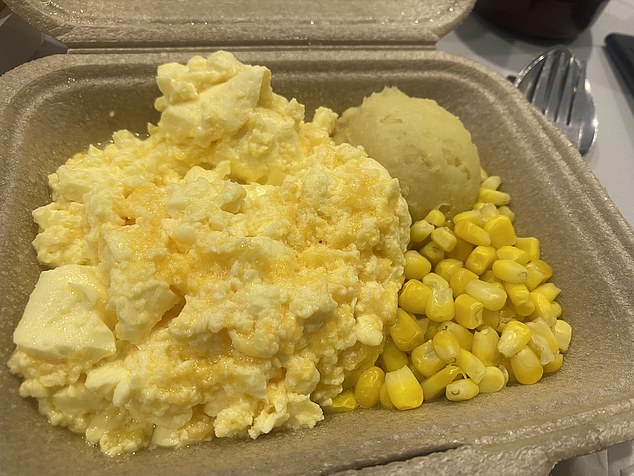
Patients served poor quality meals in hospital face a slower recovery, an expert has warned.
Dietician Dr Carrie Ruxton said the result is a longer stay in hospital when the NHS is desperate to free up beds.
The warning came after the Mail revealed a growing number of complaints from patients about the quality of food served up in facilities across the country, including at the flagship Queen Elizabeth University Hospital (QEUH) in Glasgow.
The Scottish Government yesterday stepped into the row and said it is investigating the matter.
Dr Ruxton said: ‘Nutrition takes on greater importance when people are recovering from illness.
Patients served poor quality meals in hospital face a slower recovery, an expert has warned after photos of food served to Scottish patients in hopsital were revealed
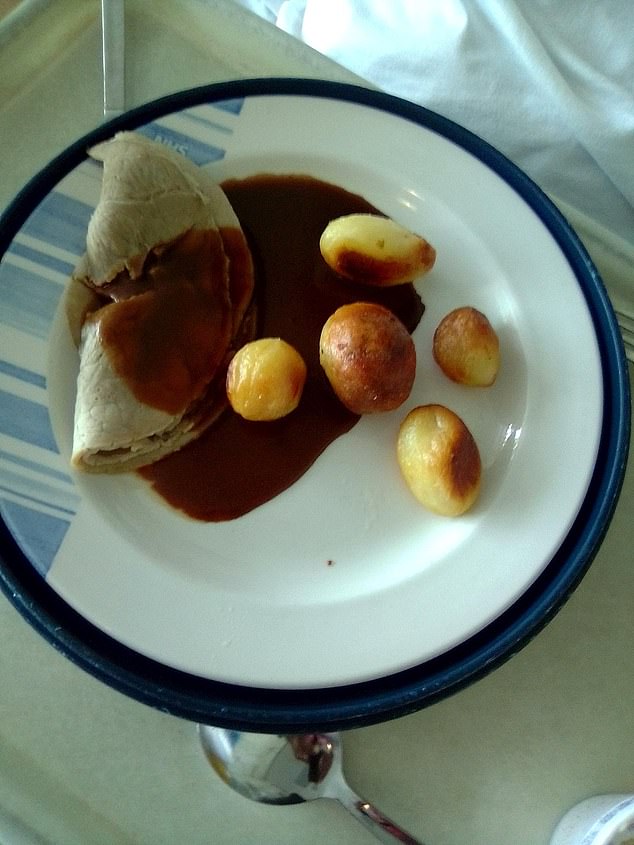



Queen Elizabeth Hospital Glasgow apologised to patients and families that their food had ‘fallen below the standards we set ourselves’
‘The risks of providing poor quality, unappetising food in hospital are greater for those who need lengthy recoveries.
‘Appetite is typically worse in hospital due to pain, fear or medication. Meals can be missed because of fasting for operations, tests or ward rounds.
‘If patients don’t get the nutrition they need, recovery is slower and hospital stays are longer, putting extra pressure on NHS budgets.
‘That’s why it’s in the interests of hospital managers to work with their catering staff to make good nutrition in hospitals a priority.’
Health bosses were forced to apologise this week after serving a patient a ‘disgusting’ meal while he was in hospital.
NHS Greater Glasgow and Clyde said it had ‘fallen below the standards’ after an image showing a bare-looking turkey dinner, served at the QEUH, went viral.
Writing on X, the patient’s daughter Lara said ‘This is the lunch served up to my father in the Queen Elizabeth hospital, Glasgow today. An absolute disgrace. Disgusting.’
The post prompted an outpouring of similar complaints from people who had been served unappetising hospital meals.
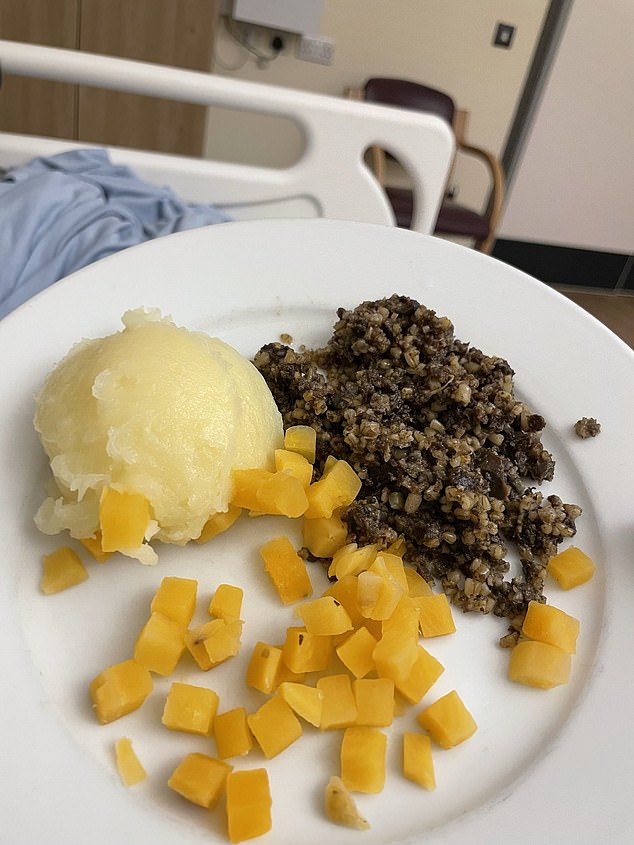



Patients said they were unabel to eat the food on offer with meals including neeps, haggis and tatties (pictured) falling below standards
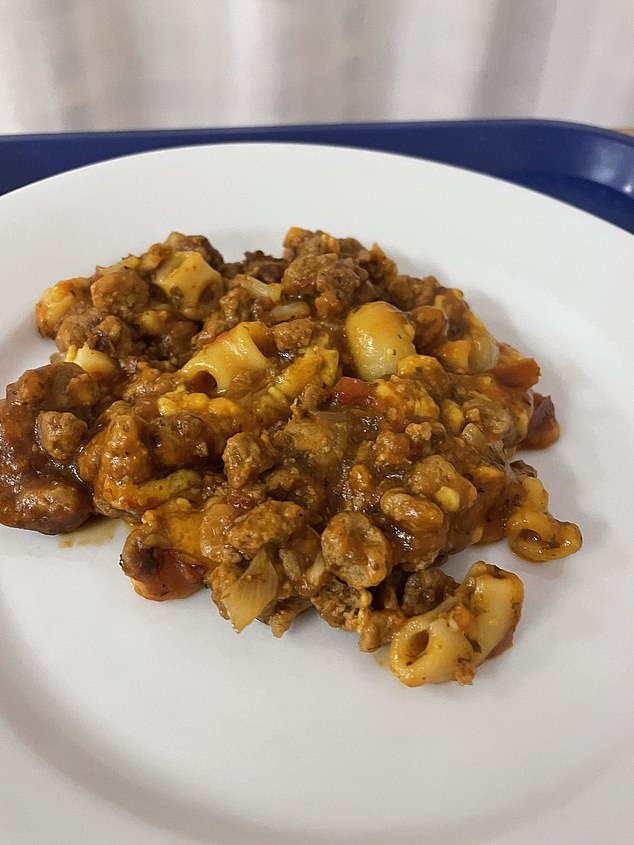



One patient asked his nurses whether they ate the meals served and described how the nurses thought he was joking
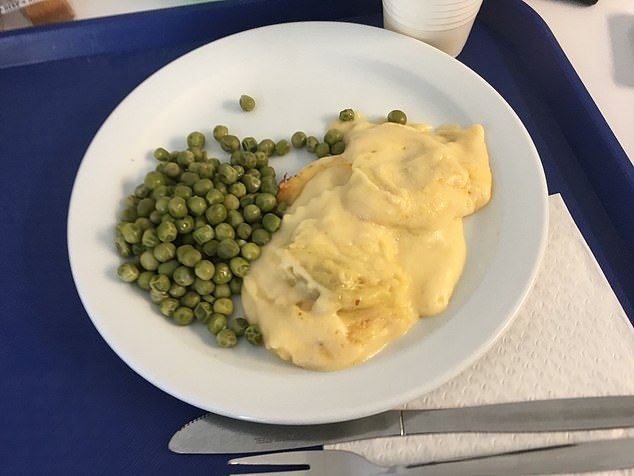



Patients called the food ‘inedible’ and asked where the protein was in meals like ravioli and peas
Scottish Daily Mail readers contacted reporters with their own experiences of ‘inedible’ food at the QEUH. One said his care was ‘first class’ but he could not eat the meals.
He added: ‘I spent two lengthy periods last February and March in the Queen Elizabeth Hospital. During both stays the food served was completely inedible.
‘I lived on sandwiches from home and when I asked nurses if they ate food served on the ward they asked me if I was joking.
‘Thankfully care while in hospital was first class.’
Another sent a photograph of a stodgy ‘ravioli’ meal served to her father at the QEUH. Despite the fact he had suffered a heart attack he was given a large serving of a congealed-looking cheese dish.
Readers sent in meals from other hospitals consisting of ‘potatoes and overboiled veg’, asking ‘where is the protein?’ and one of an indiscernible plate of yellow food in a takeaway box.
The NHS in Scotland has food standards for patients that state: ‘Eating well and enjoying food is fundamentally important for every individual’s health and wellbeing. In a hospital setting appealing food and good nutrition is vitally important. Catering provision in NHS hospitals should always be exemplary.’
A Scottish Government spokesman said: ‘The importance of meal presentation and nutrition is well accepted and emphasised in our guidance on hospital food to ensure all patients get the best possible nourishment.
‘We are looking into this particular case with NHS Greater Glasgow and Clyde.’
A spokesman for NHS Greater Glasgow and Clyde said: ‘All meals served at our hospitals are prepared in-house to meet strict nutritional standards. However, on this occasion the food has fallen below the standards we set ourselves and we apologise to the patient involved and their family.
‘We would encourage anyone who would like to discuss their meals to get in touch with our catering team.’